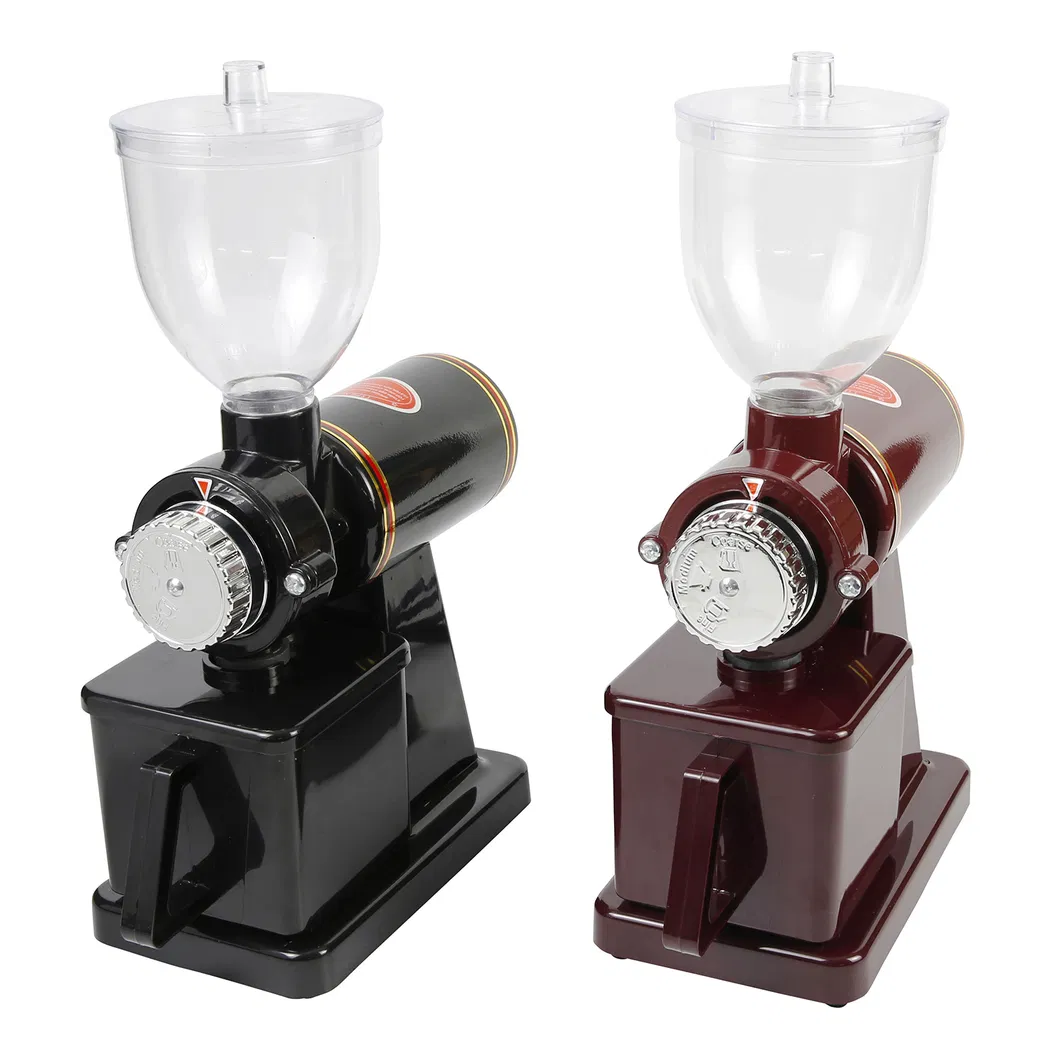Industrial Coffee Grinder: Important Qualities to Consider When Shopping
Industrial Coffee Grinder: Important Qualities to Consider When Shopping
Blog Article
Industrial Coffee Grinder Overview: Boost Performance and High Quality
In the affordable landscape of coffee production, picking the ideal industrial coffee mill plays an essential duty in enhancing both effectiveness and item top quality. Recognizing the nuances of various mill kinds and vital features-- such as personalized work setups and durable building and construction-- can dramatically affect the final flavor profile of the coffee.
Understanding Mill Types
When selecting an industrial coffee grinder, comprehending the various types available is important for enhancing both taste extraction and operational performance. The two primary sorts of mills are blade grinders and burr mills. Blade mills utilize sharp blades that chop coffee beans right into inconsistent sizes, bring about irregular removal and possibly unfavorable tastes. While blade grinders are commonly a lot more appropriate and budget-friendly for small operations, they are generally not advised for commercial use.

Ultimately, picking the appropriate type of grinder is essential to preserving quality and efficiency in coffee production, making it essential for organizations to purchase top quality burr grinders for optimal results.
Key Attributes to Take Into Consideration
Selecting a commercial coffee grinder calls for cautious factor to consider of several essential attributes that can dramatically affect both efficiency and the total coffee experience. Among the main facets to examine is the grinding device. Burr grinders are normally chosen over blade mills, as they supply a consistent grind size, which is vital for optimal removal and taste.
An additional important attribute is the grinder's capacity. Relying on the volume of coffee you require to process, choose a model that can manage your requirements without compromising speed or top quality. In addition, consider the grind settings used. A functional grinder with several setups permits you to tailor the grind dimension to different developing approaches, enhancing the coffee's flavor account.
The construction product likewise plays a role in toughness and maintenance. Stainless-steel elements often provide long life and are much easier to clean up, which is essential for keeping health standards. Finally, evaluate the grinder's noise degree, specifically in an active café or manufacturing environment, where too much sound can be disruptive. Spending in a mill that stabilizes these attributes can greatly enhance both operational effectiveness and the high quality of the coffee offered.
Optimizing Grinding Process
To accomplish the best results in coffee preparation, enhancing the grinding process is important. The work size dramatically influences removal, taste, and total quality of the made coffee.


Additionally, keeping track of the grinding speed can maximize the procedure. Slower grinding frequently produces less heat, preserving fragile tastes and aromas. On the other hand, much faster grinding might create too much heat, adversely affecting the coffee's high quality.
Maintenance and Care Tips
Proper maintenance and care of industrial coffee mills are vital for making certain optimum efficiency and durability. Routine cleaning is the structure of maintenance; deposit accumulation can influence flavor and grinding effectiveness. It is recommended to clean up the mill after each usage, wiping down the exterior and removing any type of coffee premises from the burrs.
In addition, inspect the grinding burrs for wear like this and tear. Plain burrs can endanger work consistency, so they need to be changed as necessary. Industrial Coffee Grinder. Occasionally adjusting the mill is likewise important, as this keeps the preferred grind size for different developing methods
Lubrication of moving parts must be executed according to the producer's specifications, as this minimizes friction and lengthens the life of the tools. It is important to make use of food-grade lubricants to make sure safety and security and compliance with health and wellness guidelines.
Last but not least, maintain the grinder in a dry and secure setting to avoid corrosion and corrosion. By adhering to these maintenance and care pointers, drivers can enhance the performance of their commercial coffee mills while ensuring high-grade result and extended functional life.
Roi Analysis
Assessing the roi (ROI) for commercial coffee grinders is critical for companies looking for to maximize their coffee production abilities. A thorough ROI analysis helps identify the financial viability of purchasing top quality grinders, allowing companies to go right here evaluate the initial expenses versus potential gains.
Assess the acquisition cost of the grinder, including installation and any necessary modifications to existing facilities. High-performance grinders usually lead to decreased grinding time and boosted throughput, which can considerably enhance performance.
Additionally, think about the influence on item quality. Industrial Coffee Grinder. Superior grinders produce a more constant work size, which can boost flavor accounts and customer complete satisfaction, ultimately driving sales. By enhancing the top quality of the end product, services can validate greater pricing, causing enhanced income
Final Thought
In summary, a commercial coffee grinder plays a critical function in improving both effectiveness and item top quality within coffee manufacturing. By picking top quality burr mills furnished with crucial features such as adjustable grind setups and resilient building, companies can ensure optimal flavor extraction. Additionally, regular upkeep is vital for sustaining mill performance and making the most of consumer fulfillment. Eventually, the strategic investment in a trusted mill adds dramatically to enhanced profits and competition in the coffee industry.
In the affordable landscape of coffee production, picking the appropriate commercial coffee mill plays a pivotal function in boosting both performance and item top quality. The 2 main kinds of grinders are blade mills and burr mills. Within the burr grinder group, there are flat burr grinders and conelike burr grinders, each with its advantages. Burr grinders are usually liked my sources over blade grinders, as they supply a consistent grind dimension, which is vital for optimal removal and taste.
In summary, an industrial coffee grinder plays an essential role in improving both efficiency and product top quality within coffee production.
Report this page